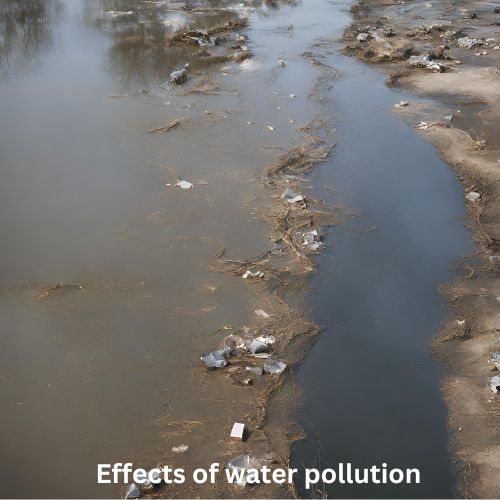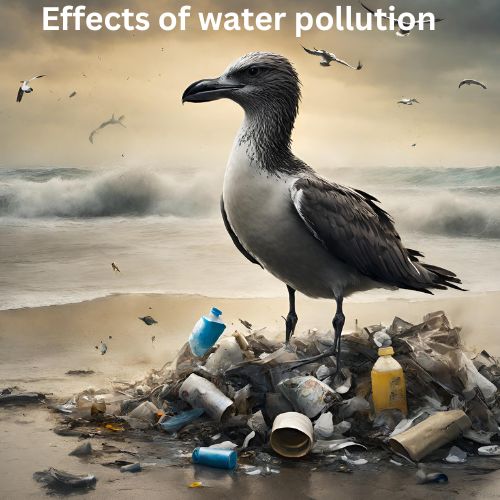The Devastating Effects of Water Pollution
The Devastating Effects of Water Pollution
Water is the essence of life. It covers over 70% of our planet and is vital for the existence of all living organisms. However, due to human activities, our water bodies are facing a severe crisis – water pollution. In this comprehensive blog, we will explore the various dimensions of water pollution, its causes, and, most importantly, its devastating effects on the environment and human health.
Water pollution refers to the contamination of water bodies such as rivers, lakes, oceans, and groundwater, making them unfit for their intended uses. This pollution can be caused by a variety of sources, including industrial discharges, agricultural runoff, and improper disposal of waste. The consequences of water pollution are far-reaching and affect not only aquatic ecosystems but also the health and well-being of communities worldwide.
The Causes of Water Pollution
Before delving into its effects, it’s crucial to understand what causes water pollution. The primary sources of water pollution include:
Industrial Activities: Factories and industrial plants often release harmful chemicals and pollutants into nearby water bodies. These pollutants can include heavy metals, toxic chemicals, and even radioactive materials.
Agricultural Runoff: The excessive use of fertilizers and pesticides in agriculture can result in runoff that contaminates nearby water sources. This can lead to the growth of harmful algal blooms and the depletion of oxygen in the water.
Municipal Sewage: Inadequate sewage treatment and wastewater management can result in the release of bacteria, viruses, and harmful pathogens into water bodies. This poses serious health risks.
Oil Spills: Accidental oil spills from shipping and drilling activities can have catastrophic effects on marine life and coastal ecosystems.
Plastic Pollution: The widespread use of plastic products and inadequate disposal methods have led to the accumulation of plastic waste in our oceans and waterways, harming marine life.
Effects of Water Pollution
Now, let’s explore the devastating effects of water pollution in more detail:

- Impact on Aquatic Life
Water pollution has a profound impact on aquatic ecosystems. Pollutants can disrupt the balance of these ecosystems in several ways:
Habitat Destruction: Contaminants can destroy the habitats of aquatic organisms, leading to a decline in biodiversity.
Chemical Imbalance: The introduction of chemicals and heavy metals can disrupt the chemical balance of water, affecting the survival and reproduction of aquatic species.
Toxic Algal Blooms: Nutrient pollution from agricultural runoff can lead to the excessive growth of harmful algae, which produce toxins that harm fish and other aquatic life.
Oxygen Depletion: Pollution can result in oxygen depletion in water bodies, causing “dead zones” where marine life cannot survive.
- Threat to Human Health
Water pollution doesn’t just harm the environment; it also poses significant risks to human health. Contaminated water sources can lead to various health issues:
Waterborne Diseases: Pathogens such as bacteria, viruses, and parasites can contaminate drinking water, causing diseases like cholera, dysentery, and hepatitis.
Toxic Chemicals: Exposure to waterborne pollutants like heavy metals and industrial chemicals can lead to long-term health problems, including cancer, developmental issues, and neurological disorders.
- Economic Impact
The economic consequences of water pollution are substantial:
Loss of Fisheries: Pollution can devastate fisheries, impacting the livelihoods of millions of people who depend on fishing for income and food.
Clean-up Costs: Cleaning up polluted water bodies is expensive, and these costs often fall on governments and taxpayers.
Tourism Decline: Polluted beaches and waterways deter tourists, leading to economic losses in regions that rely on tourism.

- Damage to Ecosystem Services
Water pollution disrupts essential ecosystem services:
Water Purification: Natural ecosystems play a critical role in purifying water. Pollution disrupts this service, increasing the need for costly water treatment.
Flood Control: Wetlands and forests help control flooding. Pollution can degrade these natural buffers, leading to increased flood risks.
Aesthetic and Recreational Value: Polluted water bodies lose their aesthetic and recreational value, affecting the overall well-being of communities.
- Groundwater Contamination
Groundwater, which provides drinking water for many communities, is also at risk:
Chemical Leaching: Pollutants can leach into groundwater, making it unsafe to drink and causing long-term health problems.
Saltwater Intrusion: Pollution can exacerbate saltwater intrusion in coastal areas, rendering groundwater undrinkable.
FAQs About Water Pollution
Let’s address some common questions about water pollution:
Q1. What are the different types of water pollution?
Water pollution can be categorized into several types, including chemical pollution (caused by industrial and agricultural chemicals), biological pollution (resulting from sewage and waste), and physical pollution (such as sedimentation and thermal pollution).
Q2. How does water pollution affect marine ecosystems?
Water pollution disrupts marine ecosystems by causing habitat destruction, altering chemical balances, and depleting oxygen. It can lead to the decline of marine species and the creation of “dead zones.”
Q3. Are there any natural processes that help mitigate water pollution?
Yes, natural processes like wetlands, forests, and aquatic vegetation play a crucial role in filtering and purifying water. Protecting and restoring these ecosystems can help mitigate the effects of water pollution.
Q4. What can individuals do to reduce water pollution?
Individuals can make a significant difference by reducing water usage, properly disposing of household chemicals, and participating in community clean-up efforts. They can also support policies and regulations aimed at curbing water pollution.
Q5. How can we ensure safe drinking water in the face of water pollution?
Ensuring safe drinking water involves investing in advanced water treatment technologies, monitoring water quality, and protecting the sources of freshwater from pollution. Community awareness and action are also essential.
Water pollution is a global crisis with far-reaching consequences for ecosystems, human health, and economies. Understanding its causes and effects is the first step towards finding sustainable solutions. By addressing water pollution at its source and promoting responsible environmental practices, we can protect our precious water resources for future generations. It’s crucial that we all work together to safeguard the quality and availability of clean water for everyone on our planet.